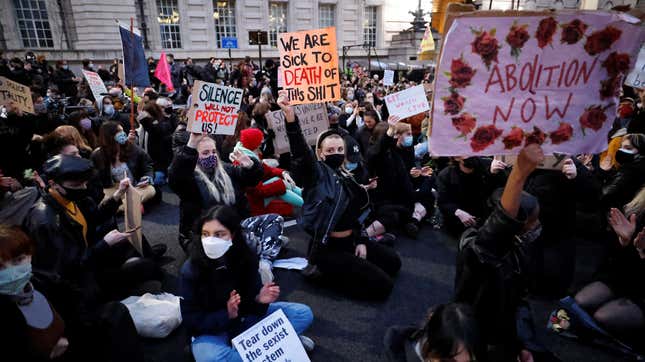Sarah Everard's Murder Shouldn't Be an Excuse to Give Police More Power
Politics

On March 12, Metropolitan Police officer Wayne Couzens was charged with the kidnapping and murder of Sarah Everard, a 33-year-old woman who disappeared in South London earlier this month while walking home from a friend’s house. So why has a new feminist organization decided that the best way forward is to give the police even more power, money, and resources?
On Tuesday, a group called Reclaim These Streets met with London Mayor Sadiq Khan and Metropolitan Police Commissioner Cressida Dick to discuss the aggressive police response to a peaceful vigil held at Clapham Common park on March 13. Reclaim These Streets organized the event in Everard’s honor, but called it off at the last minute after a court ruled that it would violate covid-19 restrictions. People gathered anyway, leaving flowers and decrying police violence and misogyny. The mournful event turned violent when overzealous Metropolitan Police officers arrived, trampling tributes, pinning demonstrators to the ground, and making arrests.
During their sit down with Khan and Dick, Reclaim These Streets outlined a series of “asks” that they believed would “help keep women in the capital safe.” The puzzling list is enough to make you wonder whether Reclaim These Streets are aware of what exactly happened to Everard and, allegedly, by whom:
-

-

-

-

-

-

-

-

-

-

-

-

-

-

-

-

-

-

-

-

-

-

-

-

-

-

-

-

-

-

-

-

-

-

-

-

-

-

-

-








































